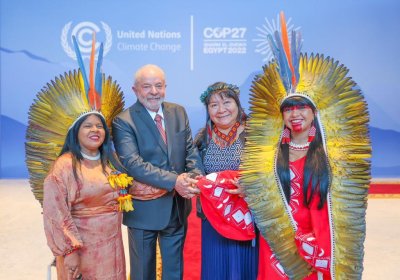Pablo Stefanoni is a journalist, editor and author of Has Rebellion Become a Thing of the Right?. Green Left’s Federico Fuentes spoke to him about the far right’s success in the recent European elections.
Pablo Stefanoni
Journalist and author Pablo Stefanoni spoke to Green Left’s Federico Fuentes from Paris about the rise of France's far-right National Rally and how the left stopped it winning the parliamentary elections held over June 30 and July 7.
Pablo Stefanoni, editor of the progressive Latin American magazine Nueva Sociedad discusses the situation in South America after the left’s victory in Brazil.
Green Left speaks with Argentine journalist Pablo Stefanoni about the "alt-right" rebellion and what the left can do about it.
Sergio Lirio speaks to Pablo Stefanoni about the recent resignations of key members of Brazil's military elite, and the growing discontent at Jair Bolsonaro's disastrous administration.
Many analysts have rushed to give their opinions regarding the “crisis of the MAS” and its consequences.
Yet, the Movement Towards Socialism (MAS — the party of President Evo Morales) has always been in crisis — if by crisis we mean internal disputes for power and the existence of personal interests.
Despite this permanent “crisis”, the MAS was able to cohere the majority of plebeian sectors through a kind of corporative alliance.
The ominous clouds that seemed to indicate the worst of storms, and which tend to hypnotise analysts inside and outside of Bolivia, dissipated following a political agreement that has set January 25 as the date for a referendum on the draft for a new constitution.
In full campaign mode, as Bolivia prepares to go to the polls again on August 10 to decide the fate of the president and nine departmental prefects [state governors] in recall referendums, Bolivias left-wing indigenous President Evo Morales took time out to speak exclusively to Argentinian journalist Pablo Stefanoni in the presidential palace.
The 10oC “summer” weather in Bolivia’s capital city is strongly felt in Bolivian Vice-President Alvaro Garcia Linera's house, which has no heating, like nearly all the houses in La Paz. For almost an hour we went over the conjuncture of a week of uncertain negotiations between the government and opposition, in search of an anxiously awaited national accord.
Nearly 16 months after the election of indigenous President Evo Morales, vice-president Alvaro Garcia Linera is an authorised spokesperson on the strategic objectives of the unfolding process. In this role, he affirms that his government aims for a capitalism with a big state presence. The vice-president spoke to Pablo Stefanoni.
They are the children of “cholos” — the disrespectful name given to urban indigenous people in Bolivia. They refer to themselves in English single-syllable words and the names of their songs speak of indigenous pride; they criticise capitalism and demand a radical social change. This mix, so appropriate for these times, characterises the “hip hop” movement of El Alto, which is expanding and channelling youth rebellion in this large city of poor migrants, located at a height of 4000 metres and surrounded by impressive snow covered peaks.




